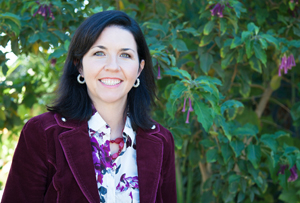Campus support units play critical roles in advancing the university mission. In doing so, these units must navigate a host of competing demands, oftentimes in the face of diminished resources. Successfully navigating this territory requires using the principles of adaptive change.
Staff Human Resources (SHR) is undergoing a transformation utilizing an adaptive change framework. Adaptive change is a concept introduced by Ronald Heifetz and Marty Linsky, professors at Harvard University. A central concept in this model is that change must come from the collective intelligence of individuals at all levels of the organization as they learn their way toward solutions.
The impetus for change can come from many sources. SHR, like so many units within UC Santa Cruz, experienced deep budget cuts over the last six years, leaving them with a staff that is one-third smaller than it had been. During this time, the number of compliance requirements, service demands, and transactions has increased. In addition, there are a variety of campus and systemwide initiatives competing for time. They also experienced a 50 percent turnover of staff between March and December 2013 due to retirements and attrition.
SHR began their adaptive change process by first focusing on filling the vacancies within their team. They have been able to bring in a group of talented new team members to join the subject matter expertise and talent that already existed within the unit. The group then turned their attention to building and sustaining a healthy team.
Focusing on team health should be a priority for every unit across campus, as our most valuable resources are our human resources. SHR is using the Optum workshop series to engage in a variety of team health topics. They also have held self-care fairs to recognize the importance of taking a holistic approach to team member health and wellness. All members of the campus community have access to similar training opportunities. Check them out at http://shr.ucsc.edu/training/course_listings/prof-development.html
Examining processes and operations has been a primary focus of the SHR unit this academic year. They have finished a series of process reviews and have made critical changes. They are currently undertaking a review of twenty process categories, ranging from leave administration to accrual management, to find opportunities for simplification and efficiency.
During fall quarter, the SHR team engaged in intensive outreach to clients and colleagues to partner in reviewing processes and developing solutions to optimize operations. A solution development team comprised of representatives from units across campus is concluding its work on developing recommendations for enhancing the recruitment and hiring process.
In November, SHR undertook an external review of Employee and Labor Relations (ELR) to develop recommendations about the structure and service delivery model of that unit. As a follow-up, the team hosted a series of client roundtables to gain the perspectives of colleagues across campus as to how the ELR unit can best support campus needs in this area. Partnering in this way is a critical aspect of the adaptive change model.
In fall quarter, SHR hosted an open house for the campus community. This was an opportunity to enhance communication, discuss departmental initiatives, talk about core functions, and engage with clients in a new way. Building transparency and relationships are both important elements of adaptive change.
I recently received an email from a colleague outlining the positive experience they had with SHR this month. In the note, the writer said it was a positive "holistic" experience. That term really represents what we are trying to achieve in SHR. In the end, it is not just about processes but also about the holistic experience of our clients. I commend SHR for the advances they have made, and I hope you all will continue to engage with us as we navigate the path ahead.
Focusing on adaptive change and team health to strengthen support units



